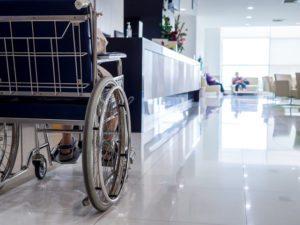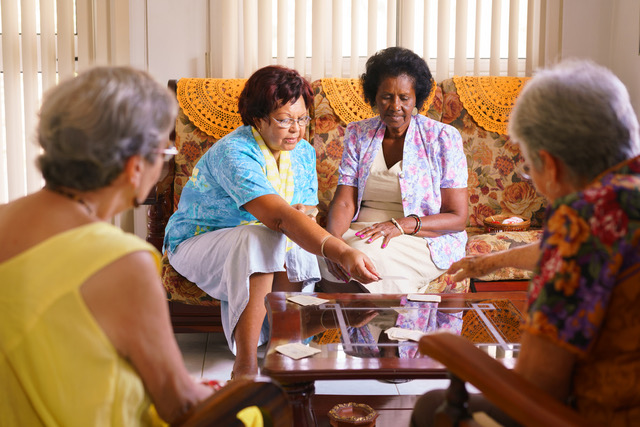There comes a point in everyone’s life where their physical and even cognitive abilities begin to decline and they aren’t capable of doing things the same way they once could. Walking becomes more of a challenge and recalling basic information isn’t always easy. The reality is, this is a part of the aging process, and it is important that as our minds and bodies change, we make the necessary modifications in our life so that our health and wellbeing aren’t jeopardized.

One common modification many find themselves making is a change in their living environment. When an individual or their family recognizes that they are no longer able to live and care for themselves on their own, they have to decide whether they should hire a licensed nurse to come to their home and help them with their day-to-day tasks or if they should go and live in an assisted living facility. Others who require more care and attention might even consider relocating to a nursing home. But what’s the difference? How does an assisted living facility differ from a nursing home?
What’s an assisted living facility?
An assisted living facility is an ideal option for someone who does not require around-the-clock care.Rather, they only require assistance “with daily activities and occasional medical attention,” says WebMD. Now, assisted living facilities do vary in structure e so there isn’t one clear way to define how one would be set up. WebMD cites that “an assisted living facility could be “a trailer in the back of somebody’s yard” or “500 apartments in a gleaming tower in downtown New York.” So, if you are looking for a place that still allows you to be independent as you haven’t yet reached a point where you are needing help with everything, then you may want to consider looking into the different assisted living facilities that are located in your area.
What is a nursing home?
Unlike an assisted living facility, a nursing home does provide around-the-clock care. The source cites that “a nursing home would be the right choice for someone who doesn’t need to be in a hospital, but who needs fairly constant nursing care.” For instance, many nursing home residents need help with things like walking, eating, bathing, etc., all of which are essential to your overall health and well-being.
One important difference Paul Willging, who is the president of the Assisted Living Federation of America (ALFA) points out between assisted living and nursing homes is that “nursing homes are not able to cater to a resident’s individual preferences because they are overregulated by the federal government.” He explains that “these regulations decide when residents take their meals and even how often they bathe.” On the other hand, “assisted living allows residents to make these decisions for themselves: It’s a matter of being asked vs. being told.”
So, in order to determine what option is best for you, you will need to consider your physical condition and what you are and are not capable of doing and whether you need around-the-clock care. Once you determine this, you will then have a better idea as to what type of care you need. In the event you are looking to relocate an aging relative of yours because you no longer feel they are safe and/or capable of providing for themselves and are considering both assisted living and nursing homes as your options, be sure you take the time to do thorough research before making a decision.
The fact is, there are many nursing homes located within the state of Illinois who aren’t meeting state and federal guidelines in terms of how they should be caring for their residents. Therefore, it is important that your loved one isn’t placed in a facility where they aren’t going to receive the care and attention they require. The nursing home abuse lawyers at Dinizulu Law Group, Ltd. have seen firsthand how devastating it can be to an aging individual to be placed in a nursing home where they are neglected or even abused and you wouldn’t want your loved one to be subjected to living in such conditions.
If you or your loved one was abused in a nursing home in Chicago, IL or in a nearby area know that there is help. The Dinizulu Law Group, Ltd. has helped thousands of injured victims arrive at a place of stability and security. Schedule your free initial consulation with us. Call 1-312-384-1920 or 1-800-693-1LAW or reach us by email.



